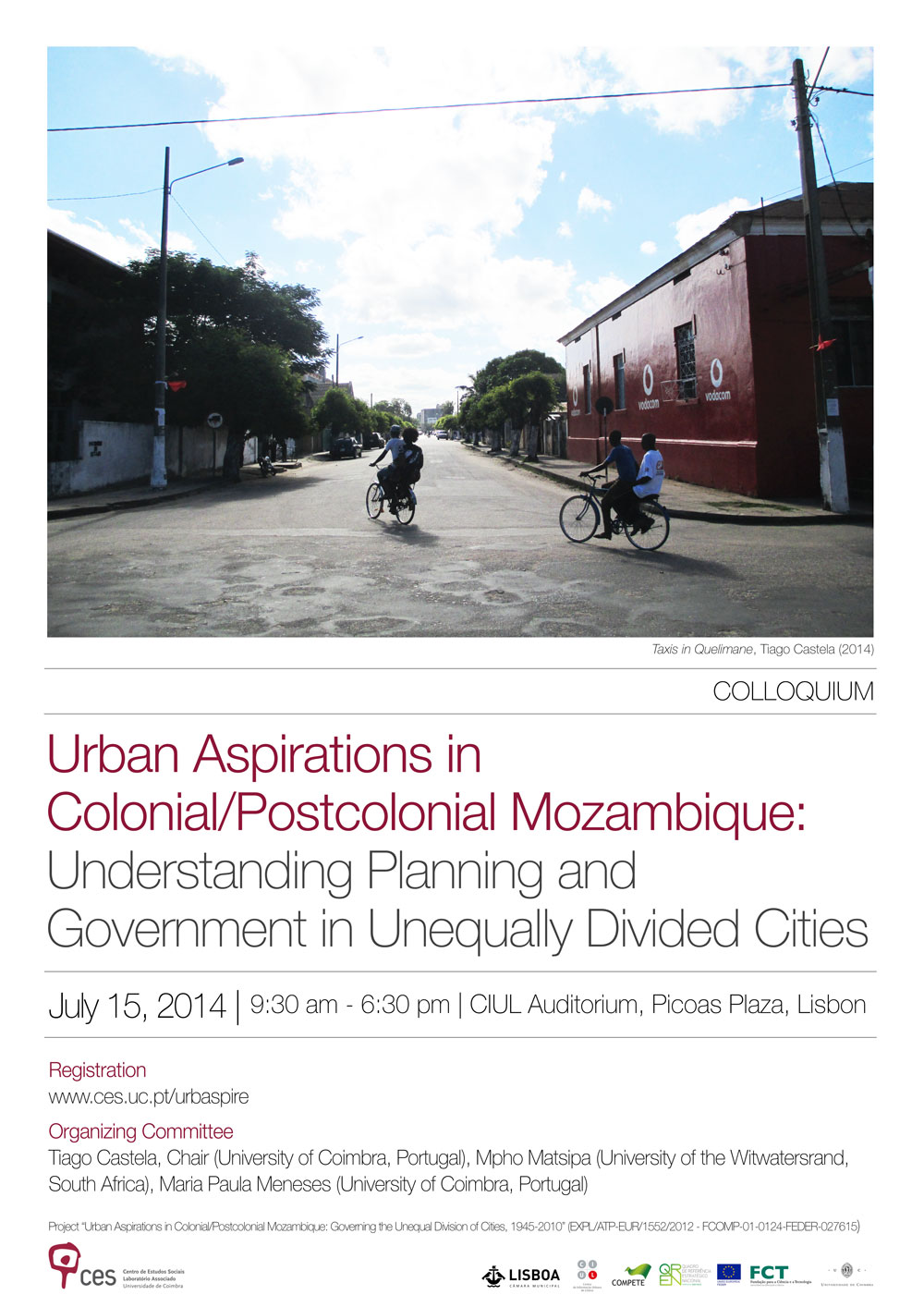Colóquio
Urban Aspirations in Colonial/Postcolonial Mozambique: Understanding Planning and Government in Unequally Divided Cities
15 de julho de 2014, 09h30-18h30
CIUL Auditorium, Picoas Plaza, Lisbon
This one-day colloquium on urban aspirations in colonial and postcolonial Mozambique will examine the emergence and the history of ideas about urban futures, foregrounding the role of the figure of the peripheral in urban prospective. It will address how such situated urban imaginations are formed through plural circuits of knowledge linking unequally divided cities, such as the Mozambican capital Maputo and the northern city of Quelimane, as well as the primatial southern African city, Johannesburg, and the former political capital of the Portuguese empire, Lisbon. We intend through this colloquium to contribute to a broad debate on the persistences of authoritarian and colonial rationalities of government in present-day urban planning, and hence on the dangers of planning expertise for political democratization, in states both in the African and in the European regions. How can research on urban aspirations participate in the conception of an urban planning knowledge that is attentive to diverse forms of urban living, and that is not inimical to a democratic urban government?
The colloquium will start by reviewing the findings of the exploratory research project “Urban Aspirations in Colonial/Postcolonial Mozambique: Governing the Unequal Division of Cities, 1945-2010”, undertaken at the Center for Social Studies of the University of Coimbra for the Portuguese state Foundation for Science and Technology. We will focus on the role of planning in the government of inequality, and in particular on the valuations of peripheral space in late colonial and early postcolonial state planning, as well as on contemporary discourses of the urban created through migrations between Mozambique and South Africa. Next, we will discuss ongoing research projects on Maputo. If urban planning as a knowledge is to be disarticulated from authoritarian and colonial rationalities of government, a critical interest in urban aspirations necessitates an attention to contemporary issues as disparate as subjectivity formation through new modes of utilities’ provision, struggles around urban farming, or clothing fashion practices. Finally, we will conclude the colloquium with a brief exploration of cinematic representations of Maputo, and with a debate on future paths for research on the relations between planning expertise and democratic urban government in unequally divided cities.
Associated Event
The colloquium will be preceded by a conference by Professor Paul Jenkins (School of Architecture and Planning, University of the Witwatersrand, South Africa) at CES-Lisbon on July 14, 2014, titled “Alternative conceptions of planning and their relevance for sub-saharan cities: case study of Maputo.”The conference will be held at the CIUL Auditorium from 5 pm to 7 pm.
Organizing Committee
Tiago Castela, Chair (University of Coimbra, Portugal)
Mpho Matsipa (University of the Witwatersrand, South Africa)
Maria Paula Meneses (University of Coimbra, Portugal)
Registration Information
Attendance to the colloquium is free and open to the public. However, seating is limited and thus registration is required.
Registration must be completed no later than July 14, 2014.


